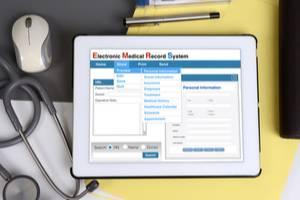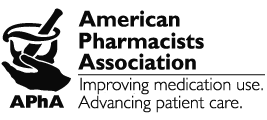Recent Blog Posts
Unpaid Child Support Could Cause You to Lose Your Medical License
 Whether through a divorce or breakup, court-ordered child support payments often rankle the sentiments of the person ordered to make payments. This could be because the person making payments (payor) did not want the child in the first place, or did not support the divorce or breakup; other times, it is because the payor can see that payments are benefitting the child’s other parent, rather than the child. Job loss, addiction, or criminal behavior could also lead to nonpayment of child support.
Whether through a divorce or breakup, court-ordered child support payments often rankle the sentiments of the person ordered to make payments. This could be because the person making payments (payor) did not want the child in the first place, or did not support the divorce or breakup; other times, it is because the payor can see that payments are benefitting the child’s other parent, rather than the child. Job loss, addiction, or criminal behavior could also lead to nonpayment of child support.
Whatever the reason, people sometimes fall behind on child support payments and get caught up in the Indiana Department of Child Services (DCS), the legal system intended to resolve child support issues. While the people who work in this system are undoubtedly well-intentioned, they are not always well-informed or considerate as they work to enforce child support orders. If you are behind on child support payments and are worried that your professional medical license could suffer, read on.
Five Reasons a Chiropractor Might Have Their License Suspended
 With a long history of effectively diagnosing and treating bone, joint, and muscle disorders, chiropractors are often part of someone’s trusted team of healthcare providers. However, like any other health professional, chiropractors can face disciplinary procedures and even criminal charges.
With a long history of effectively diagnosing and treating bone, joint, and muscle disorders, chiropractors are often part of someone’s trusted team of healthcare providers. However, like any other health professional, chiropractors can face disciplinary procedures and even criminal charges.
Even if you have never faced disciplinary procedures, it is important to understand what kind of issues could lead to professional sanctions like license revocation, suspension, or probation. If you are already under investigation by the board, make sure you take immediate action to protect yourself with the help of an Indiana professional license defense attorney.
Common Reasons for Chiropractic License Suspension
Many behaviors have the potential to result in professional license discipline for chiropractors in Illinois, including:
How Can Patient Abandonment Jeopardize Your Professional License?
 Patients often see the same medical practitioner, therapist, or dentist for many years. Indeed, many practicing professionals say one of the best parts of their job is developing relationships with clients and their families over time. But another less pleasant part of the job is ending relationships with patients. While licensed practitioners can decide to stop seeing a patient for a number of legitimate reasons, the practitioner must go about ending the practitioner-patient relationship carefully because failing to do so could lead to accusations of patient abandonment. Unfortunately, a patient with whom a practitioner is most likely to need to end a relationship may also be likely to be the kind of person to become litigious. In cases like this, it is essential to have the support of an Indiana professional license defense attorney.
Patients often see the same medical practitioner, therapist, or dentist for many years. Indeed, many practicing professionals say one of the best parts of their job is developing relationships with clients and their families over time. But another less pleasant part of the job is ending relationships with patients. While licensed practitioners can decide to stop seeing a patient for a number of legitimate reasons, the practitioner must go about ending the practitioner-patient relationship carefully because failing to do so could lead to accusations of patient abandonment. Unfortunately, a patient with whom a practitioner is most likely to need to end a relationship may also be likely to be the kind of person to become litigious. In cases like this, it is essential to have the support of an Indiana professional license defense attorney.
What Your Practice Needs to Know About the LEIE Database
 When a provider has been banned from receiving payments from Medicaid, Medicare, and other federal medical insurance programs, they are added to the List of Excluded Individuals/Entities (LEIE). The database was established in 1977 and is managed by Health and Human Services (HHS) Office of the Inspector General (OIG). It is critical that healthcare entities check the database to see if current employees, potential new hires, and contractors are entered into the database. Failure to conduct that check could have serious legal and financial consequences.
When a provider has been banned from receiving payments from Medicaid, Medicare, and other federal medical insurance programs, they are added to the List of Excluded Individuals/Entities (LEIE). The database was established in 1977 and is managed by Health and Human Services (HHS) Office of the Inspector General (OIG). It is critical that healthcare entities check the database to see if current employees, potential new hires, and contractors are entered into the database. Failure to conduct that check could have serious legal and financial consequences.
Who Is On the LEIE?
There are two categories for provider exclusions. Mandatory exclusions are those that are legally required and are added because the provider has been convicted of a felony. The types of crimes include:
-
Medicaid or Medicare fraud
Hundreds of Indiana Nurses to Receive Audit Non-Compliance Orders
 According to regulations issued by the Indiana State Board of Nursing, all Advanced Practice Nurses (APN) are required to obtain continuing education in order to keep their nursing license in good standing with the state. Failure to meet this obligation could result in the Board taking action against an APN’s nursing license. Recently, The Law Offices of Joseph J. Bogdan, Inc. has learned that more than 400 APNs will be served with orders to show cause for noncompliance with these audits. If you receive one of those orders, call our office right away.
According to regulations issued by the Indiana State Board of Nursing, all Advanced Practice Nurses (APN) are required to obtain continuing education in order to keep their nursing license in good standing with the state. Failure to meet this obligation could result in the Board taking action against an APN’s nursing license. Recently, The Law Offices of Joseph J. Bogdan, Inc. has learned that more than 400 APNs will be served with orders to show cause for noncompliance with these audits. If you receive one of those orders, call our office right away.
APN Requirements and Audits
In Indiana, all APNs are required to obtain a minimum of 30 hours of continuing education. At least eight of those hours must be in pharmacology. All programs must be approved by a sponsor of continuing education for APNs who has obtained national approval. Advanced Practice Nurses are also required to retain all continuing education completion certificates to prove these requirements have been met should the Board audit the nurse.
Allegations of Healthcare Billing Fraud Can Result in Loss of Medical License
 There is no denying that the healthcare billing system is a complex one, whether you are dealing with private insurance or government insurance, such as Medicare and Medicaid. There are multiple codes and processes to keep track of, which can be difficult because of the way things are always being updated and changed. Unfortunately, billing errors do occur. Even more unfortunate is that some of these errors can lead to allegations of healthcare billing fraud, putting a physician’s medical license – and even their freedom – in jeopardy.
There is no denying that the healthcare billing system is a complex one, whether you are dealing with private insurance or government insurance, such as Medicare and Medicaid. There are multiple codes and processes to keep track of, which can be difficult because of the way things are always being updated and changed. Unfortunately, billing errors do occur. Even more unfortunate is that some of these errors can lead to allegations of healthcare billing fraud, putting a physician’s medical license – and even their freedom – in jeopardy.
What Are Examples of Healthcare Billing Fraud?
A physician or other medical provider can be accused of healthcare billing fraud if there is evidence that they intentionally manipulated the insurance billing system or coding to their advantage. One common type of fraud is referred to as upcoding. Upcoding occurs when a patient receives bills from the provider for services that are more expensive than the actual services they received.
Can Errors in EHRs Lead to Loss of a Medical License?
 Technological advances have improved processes in multiple professions, including the medical profession. One significant change is how doctors and other medical professionals’ access and update patients’ medical records. No longer are patient histories, vital signs, symptoms, treatments, and other information written to medical records by hand. Instead, the majority of medical providers now use electronic health records (EHR). While this technology is supposed to be more efficient, there are still issues with accuracy and errors, which could result in professional complaints and even more serious ramifications.
Technological advances have improved processes in multiple professions, including the medical profession. One significant change is how doctors and other medical professionals’ access and update patients’ medical records. No longer are patient histories, vital signs, symptoms, treatments, and other information written to medical records by hand. Instead, the majority of medical providers now use electronic health records (EHR). While this technology is supposed to be more efficient, there are still issues with accuracy and errors, which could result in professional complaints and even more serious ramifications.
What Are Electronic Health Records?
An electronic health record is a digital version of a medical chart that contains all of the information regarding a patient’s health. Some of the information the record contains includes:
Allegations That Can Result in a Medical License Suspension in Indiana
 When you look at that medical license you have hanging on the wall in your office, you know the years of dedication it took to obtain it. The education, training, and sacrifices that were necessary to get to where you are today. But that license – and your entire career – is vulnerable to allegations of any kind of wrongdoing. If you have been notified of an investigation by the Medical Licensing Board of Indiana due to accusations or complaints, your medical license could be in jeopardy. The following are some of the most serious acts that can result in an investigation.
When you look at that medical license you have hanging on the wall in your office, you know the years of dedication it took to obtain it. The education, training, and sacrifices that were necessary to get to where you are today. But that license – and your entire career – is vulnerable to allegations of any kind of wrongdoing. If you have been notified of an investigation by the Medical Licensing Board of Indiana due to accusations or complaints, your medical license could be in jeopardy. The following are some of the most serious acts that can result in an investigation.
Criminal Conviction
If a physician is convicted of a crime, the medical board will usually move to suspend that doctor’s medical license. One of the most common criminal convictions that can result in a temporary medical license suspension is DUI, however, convictions of harassment, stalking, or sexual assault can also result in actions taken against your medical license.













